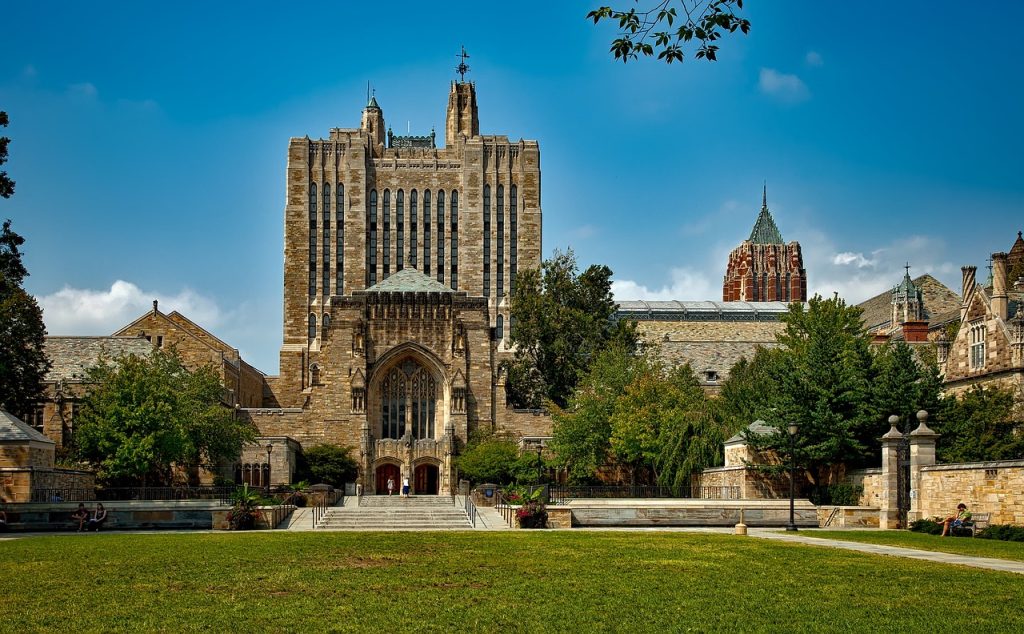
How to Get into an Ivy League College?
If you’re aiming for an Ivy League school, now is the time to build a plan. The 2025 admissions cycle is already here, and every decision—from course selection to test preparation to college essays—will shape your chances of success.
Ivy League schools value diversity, and international students bring a unique global perspective. Indian students often have a strong academic foundation, a deep commitment to learning, and a passion for personal growth. By contributing to the international mix on campus, you’ll bring valuable insights to classroom discussions and extracurricular activities, enriching the overall community.
What is an Ivy League college?
The Ivy League is a group of eight private universities in the U.S. known for their academic rigor, prestige, and selectivity. These schools offer world-class education, cutting-edge research, and elite alumni networks. Gaining admission to an Ivy League college is highly competitive and requires a combination of academic excellence, strong extracurriculars, and personal qualities that align with the school’s values.
Ivy League Colleges Acceptance Rates
| University | Acceptance Rate | QS World Ranking 2025 | Key Highlights |
|---|---|---|---|
| Harvard University | 3.4% | 4 | Oldest U.S. institution; renowned for liberal arts, business, and STEM programs. |
| University of Pennsylvania (UPenn) | 4.4% | 11 | Home to Wharton School; excels in finance and entrepreneurship. |
| Cornell University | 7.0% | 16 | Largest Ivy; renowned for engineering, hospitality, and agriculture programs. |
| Princeton University | 4.5% | 22 | Emphasis on research, engineering, and public policy; offers generous financial aid. |
| Yale University | 4.6% | 23 | Known for humanities, law, and STEM; fosters creativity and leadership. |
| Columbia University | 3.9% | 34 | Urban campus in NYC; strong programs in journalism, business, and computer science. |
| Brown University | 5.1% | 79 | Offers an open curriculum; strong focus on liberal arts and student-driven learning. |
| Dartmouth College | 6.0% | 243 | Smallest Ivy; tight-knit community with strengths in government, economics, and sciences. |
Timeline for Ivy League Admissions in 2025
| January 1, 2025 | Regular Decision (RD) Deadline – Submit all applications via Common App/Coalition App. | Regular Decision deadline for all Ivy League schools. |
| February – March 2025 | Interviews (if required); monitor application portals for updates. | Alumni interviews for most schools (optional for Harvard & Princeton). |
| March – April 2025 | Admission results released; compare financial aid packages. | Ivy Day (March-end) – All Ivy League colleges release decisions simultaneously. |
| May 1, 2025 | College Decision Day – Confirm enrollment at your chosen university. | Must finalize enrollment and pay deposit. |
| June – July 2025 | Apply for student visa (F-1), housing, and prepare for departure. | All Ivy League schools assist with visa applications. |
| August – September 2025 | Move to the U.S., attend orientation, and start college! | Orientation programs at each Ivy League school. |
Book Your 1-1 Free Counselling
Admission Requirements
1. Academic Excellence (Grades & Rigor)
High School Performance:
- Aim for 95%+ (CBSE/ICSE/State Boards) or 3.9+ GPA (US system)
- Consistently high marks in Class 9-12
- Class rank in the top 5-10% of your batch is ideal
Challenging Coursework:
- Take the most rigorous courses available (Advanced Placement (AP), IB, A-Levels, or Honors)
- Strong focus on STEM, Humanities, or Social Sciences, depending on your intended major
Standardized Tests (SAT/ACT, TOEFL/IELTS):
- SAT: 1500+ (out of 1600) OR ACT: 34+ (out of 36)
- Many Ivy League schools are test-optional, but a high score helps
- TOEFL (100+) or IELTS (7.5+) if you studied in a non-English medium school
2. Exceptional Extracurricular Activities (ECAs)
Ivy League schools prefer quality over quantity. Focus on a few high-impact activities:
Leadership Roles:
- Founder/President of a club (Debate, MUN, Coding, Science, etc.)
- Head Boy/Girl, Student Council, or Social Initiative Leader
Olympiads & Competitions:
- National & International Achievements in Math, Science, Coding, Debate, or Business
- Examples: IMO, IPhO, Google Science Fair, Regeneron ISEF, HMMT
Internships & Research Work:
- Research papers published in journals or presented at conferences
- Interning with professors, companies, or NGOs in your field
Community Service & Social Work:
- Meaningful volunteer work with an NGO, startup, or own initiative
- Impact-based projects (education, environment, healthcare, etc.)
Sports, Music, or Arts:
- National/State-level recognition in sports, music, dance, or drama
- Winning prestigious competitions (e.g., Trinity College Music Exams, Spelling Bee, Robotics)
3. Strong Personal Essays
Common App Personal Statement (650 words)
- A compelling, personal, and unique story that shows character, ambition, and resilience
- Avoid clichés (e.g., “I learned teamwork from football”)
Supplemental Essays
- Every Ivy League college has specific essays (e.g., Why Columbia? or What makes you unique?)
- Be specific about how you fit into that school’s culture and programs
4. Letters of Recommendation (LORs)
2-3 LORs from Teachers & Mentors
- Choose teachers who know you well academically and personally
- 1-2 academic LORs (Math, Science, English, or major-related subjects)
- 1 additional LOR (Counselor, Internship Supervisor, or Research Mentor)
5. College-Specific Early Decision (ED) & Early Action (EA)
Applying Early (ED/EA) Increases Chances
- Early Decision (ED): Binding agreement; applies to UPenn, Columbia, Dartmouth, Brown, Cornell
- Early Action (EA): Non-binding; available at Harvard, Yale, Princeton
- Regular Decision (RD): Apply to multiple Ivies but with lower acceptance rates
6. Financial Aid & Scholarships
Need-Based Aid (offered at all Ivy League colleges)
- Generous aid for international students at Harvard, Princeton, Yale, and UPenn
- Other Ivy Leagues offer aid but may be more competitive for international students
External Scholarships
- Consider Inlaks, Tata, KC Mahindra, and Rhodes Scholarships
7. Interviews (if required)
Alumni Interviews
- Conducted by most Ivy League schools (optional for Harvard & Princeton)
- Focus on personality, goals, and reasons for choosing that college
Common Mistakes to Avoid in Ivy League Applications
- Generic Essays—Avoid clichés; use personal stories and specific anecdotes.
- Overemphasizing Grades—Academics matter, but leadership, impact, and extracurriculars are just as crucial.
- Lack of Leadership—Depth over breadth; showcase initiative and long-term commitment.
- Weak Recommendations— Choose teachers who know you well and can highlight your strengths.
- Poor College Fit— Research each Ivy League school’s unique culture and tailor your application accordingly.
- Rushing the Application— Start early, revise thoroughly, and get feedback before submitting.
- Ignoring Optional Sections— Use optional essays and interviews to strengthen your application.
Alternate Ways to Get Into Ivy League Colleges
- Transfer Admissions— Start at a strong university (like SUNY, UC schools, or top Indian colleges) and transfer after 1–2 years with a high GPA.
- Graduate Programs— If undergrad admission is tough, aim for Ivy League master’s or Ph.D. programs after excelling in your bachelor’s.
- Community College Pathway— Some Ivy Leagues accept top-performing community college transfers.
- Dual-Degree & Exchange Programs— Partner schools (like Sciences Po for Columbia) offer pathways to an Ivy degree.
- Summer & Online Courses— Enroll in Ivy League summer schools, pre-college, or online programs to build connections.
FAQs
- How hard is it to get into an Ivy League college?
- Very difficult! Acceptance rates range from 3% to 10%, making them among the most competitive universities in the world.
- Very difficult! Acceptance rates range from 3% to 10%, making them among the most competitive universities in the world.
- Can Indian students get full scholarships?
- Yes! Ivy League schools offer need-based financial aid (not merit-based). If admitted, they may cover 100% of demonstrated financial need
- Yes! Ivy League schools offer need-based financial aid (not merit-based). If admitted, they may cover 100% of demonstrated financial need
- Do Ivy League schools require SAT/ACT in 2025?
- Some schools remain test-optional, but strong scores can boost your chances. Check each school’s latest policy before applying.
- Some schools remain test-optional, but strong scores can boost your chances. Check each school’s latest policy before applying.
- Can I transfer to an Ivy League school?
- Yes, but it’s competitive. Transfer acceptance rates are even lower than freshman admissions. A high GPA (3.8+), strong extracurriculars, and compelling essays help.
- Yes, but it’s competitive. Transfer acceptance rates are even lower than freshman admissions. A high GPA (3.8+), strong extracurriculars, and compelling essays help.
- Is SUNY an Alternative to the Ivy League?
- Yes, for affordability and quality education. No, if you seek Ivy League prestige
Conclusion: Preparing for Success Beyond Admissions
While the road to an Ivy League school is challenging, it’s absolutely possible with the right preparation and mindset. Getting into an Ivy League college from India in 2025 requires strategy, dedication, and a well-rounded approach to application building.
Moreover, the landscape of elite education is evolving. As traditional Ivy League schools like Harvard, Yale, and Princeton face scrutiny and competition from emerging institutions, often referred to as the “New Ivies,” prospective students should remain informed about their options. Schools such as Boston College and Northwestern University are gaining recognition for their academic rigor and potential for student success, highlighting the importance of considering a broader list of institutions when preparing for higher education.
Book Your Free Counseling Session Today



